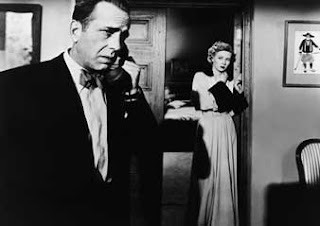 Andrei Zviyagintsev's The Return
Andrei Zviyagintsev's The ReturnDavid Hudson, formerly of GreenCine Daily and then the short-lived IFC Daily, returns with the third incarnation of his invaluable roundup of links to the world of internet cinephilia, now called The Auteurs Daily. http://www.theauteurs.com/notebook/posts?author_id=55 David's posts can be found at The Auteurs Notebook, but he is now sharing a page with several other contributors. He is also launching a Twitter feed as a companion to this new enterprise, to which I quote David Ehrenstein's comment, "Tweets are for birds." Others may find that particular innovation more valuable than I do. Anyway, the return of David Hudson after a well-deserved month's vacation is great news to everyone in the online cinephile community.








